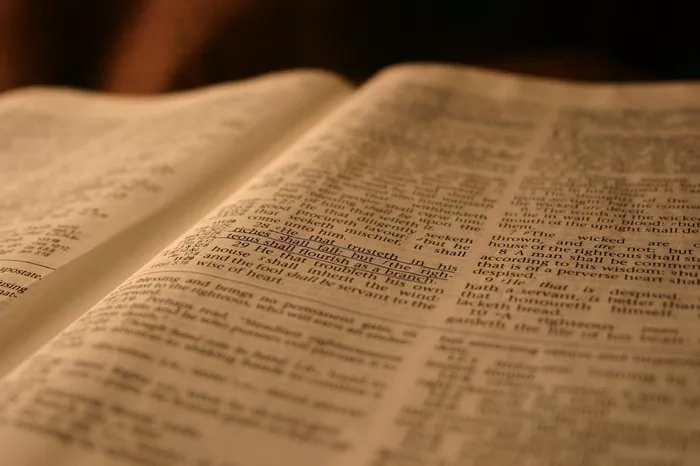The Book of Exodus, one of the foundational texts of the Hebrew Bible, introduces us to two remarkable women whose courageous actions play a pivotal role in the narrative of the Israelite exodus from Egypt. These women, Shiphrah and Puah, are presented in Exodus 1:15-21 as Hebrew midwives who defied the oppressive orders of the Pharaoh. Their story is not only a testament to their bravery but also highlights the themes of faith, resistance, and divine justice.
The Context of Exodus
To understand the significance of Shiphrah and Puah, it is essential to grasp the broader context of the Book of Exodus. This book details the enslavement of the Israelites in Egypt, their subsequent liberation under the leadership of Moses, and the establishment of the covenant between God and Israel at Mount Sinai. The narrative begins with a new Pharaoh who feels threatened by the growing population of Israelites and decides to subjugate them through hard labor. Despite this oppression, the Israelites continue to multiply, prompting the Pharaoh to take more drastic measures.
The Pharaoh’s Decree
In Exodus 1:15-16, the Pharaoh commands Shiphrah and Puah to kill all newborn Hebrew boys. This decree is a desperate attempt to curb the population growth of the Israelites and prevent any potential uprising. The Pharaoh’s command is explicit: “When you are helping the Hebrew women during childbirth on the delivery stool, if you see that the baby is a boy, kill him; but if it is a girl, let her live.”
See Also: Why Did God Harden Pharaoh’s Heart?
Shiphrah and Puah’s Defiance
Shiphrah and Puah’s response to the Pharaoh’s decree is an act of civil disobedience motivated by their reverence for God. In Exodus 1:17, it is written, “The midwives, however, feared God and did not do what the king of Egypt had told them to do; they let the boys live.” Their fear of God, a recurring theme in the Hebrew Bible, signifies a deep respect for divine authority over human authority. By choosing to let the boys live, Shiphrah and Puah place themselves in direct opposition to the most powerful man in Egypt.
The Significance of Their Actions
The actions of Shiphrah and Puah have several layers of significance:
Preservation of Life: By saving the Hebrew boys, Shiphrah and Puah ensure the survival of the Israelite community. Their actions directly contribute to the continuity of the Israelite lineage, which is crucial for the unfolding narrative of the Hebrew Bible.
Moral Courage: Shiphrah and Puah’s defiance of the Pharaoh is an exemplary act of moral courage. They choose to follow their conscience and divine command rather than succumb to the fear of earthly power. This courage is particularly striking given their vulnerable position as midwives in a patriarchal and hierarchical society.
Role of Women: The story of Shiphrah and Puah highlights the significant role women play in the biblical narrative. Often, the contributions of women are overlooked in ancient texts, but in this instance, their actions are foregrounded and celebrated. Their story serves as an early example of women’s agency and influence within the biblical tradition.
Divine Reward
God’s response to the midwives’ actions underscores the biblical theme of divine justice. In Exodus 1:20-21, it is written, “So God was kind to the midwives and the people increased and became even more numerous. And because the midwives feared God, he gave them families of their own.” This passage indicates that God rewards Shiphrah and Puah for their faithfulness and bravery. The reward of families can be seen as both a literal and symbolic blessing, ensuring that their names and lineage are honored in perpetuity.
Interpretations and Legacy
The story of Shiphrah and Puah has been interpreted in various ways throughout history, reflecting its enduring relevance. Some interpretations focus on the ethical dimensions of their actions, viewing them as paragons of moral integrity. Others emphasize the political implications, seeing their defiance as a form of resistance against oppressive regimes.
In Jewish tradition, Shiphrah and Puah are often celebrated as heroines who embody the values of piety and righteousness. Their story is particularly resonant during times of persecution, serving as a reminder of the power of faith and the importance of standing up for what is right, even in the face of overwhelming odds.
Shiphrah and Puah in Modern Context
In contemporary discourse, Shiphrah and Puah can be seen as symbols of resistance and the struggle for justice. Their story has been invoked in various social justice movements, highlighting the role of ordinary individuals in challenging systemic oppression. Their actions demonstrate that even those with limited power and resources can make a significant impact through courage and conviction.
Conclusion
The narrative of Shiphrah and Puah in the Book of Exodus is a profound testament to the power of faith and the courage to resist unjust authority. Their story, though brief in the biblical text, reverberates through history as a powerful example of moral integrity and divine justice. As we reflect on their legacy, Shiphrah and Puah inspire us to consider the ways in which we can act with bravery and righteousness in our own lives, standing up for the vulnerable and opposing injustice wherever it is found.


